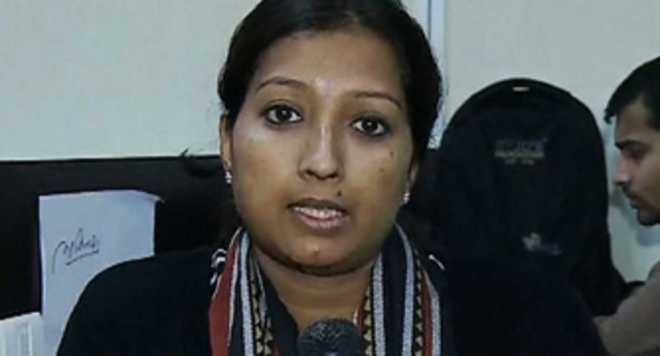Vibha Sharma
Tribune News Service
New Delhi, February 19
Considering its long-term ramifications for NGOs operating in India, Greenpeace activist Priya Pillai's ongoing battle with the Centre is being keenly followed by fellow activists and groups.
For the NGOs, who shared a rather comfortable relationship with the previous Congress-led UPA government, it is a fight for survival in the BJP-led NDA regime. Pillai, who is fighting a case against the Union Government against her "unceremonious" offloading from a UK-bound flight last month, has found support from activists who see the government action against her "a deliberate attempt to stifle voices of dissent" by the "totalitarian" Narendra Modi government.
The government maintains that Pillai's statement before British parliamentarians would be included in foreign policy documents by those who want to "subdue India's increasing strength on global platforms". BJP leaders also talk of a need to curb "anti-national activities by foreign-funded groups who want to stall India's development and growth story" and had "a field day in the UPA regime".
Government representatives told the Delhi High Court that Pillai's meeting with the committee would have created a "false image" of India's "massive" efforts to protect tribal rights, resulting in "global cascading" effect.
The current situation
The Delhi High Court has reserved its verdict. Speaking on Pillai's behalf, senior advocate Indira Jaising today made her final submissions. The verdict, as per Greenpeace, is expected next week.
Pillai filed a writ petition on January 27 in the court, challenging her "illegal and arbitrary offloading" at the IGIA. Yesterday, the government offered to strike off her name from the LOC (lookout circular) list if she gave a written undertaking that she would not make any submissions that could "embarrass" India on foreign shores.
Pillai, who rejected the offer, is questioning what the government perceives as "embarrassing or anti-national". "Who can define an anti-national? I know exactly what I was doing. I was going to the UK to depose against a UK-registered company which is indulging in human rights violations in India. I was not targeting or embarrassing the Indian Government. I was talking to British parliamentarians against a British company, which Indian Government now seems to be protecting.
"My question is why the Indian Government is protecting this British company? Who is anti-national? I, who is trying to protect tribal rights, or the government, who is seen shielding this foreign company violating our human rights? Why am I being targeted?" says Pillai, who after being offloaded, interacted with the committee via skype.
Himanshu Thakkar of SANDARP feels that through this action against Pillai, the government may be trying to send a "message" to others. "In these times of modern technology, the way the government made concerted efforts to stop Priya is clearly an attempt to send across the message that it will not tolerate dissent, that development is supreme. The way the government defended its stance in the court is an indication that it believes Priya's off-loading was justified. If Priya by talking about violations of tribal rights was indulging in anti-national activity then how would you describe the work of Kailash Satyarthi? He is also highlighting violations of labour and children's rights in India," Thakkar said.
"If an organisation or individual is doing illegal work, take steps against them in a legal and transparent manner. As the court also said, there will be protest and agitation before the coming up of projects in India. It said Pillai has the right to project her views against policies of government in democratic country like India," Thakkar said.
The court has described the decision to offload Pillai as "inappropriate". "The government decision is not appropriate as there are many people who indulged in various anti-national activities but were traveling abroad," Justice Rajiv Shakdher has been quoted as saying at one of the hearings. Responding to the remarks of Additional Solicitor General Sanjay Jain, he said: "A different point of view doesn't tantamount to being anti-national."
As per the government lawyer, Pillai's proposed "testimony" before the British parliamentary committee would have been "prejudicial" to India's interests. He said the government had no objection to Pillai expressing views on the issue in India.
Unlock Exclusive Insights with The Tribune Premium
Take your experience further with Premium access.
Thought-provoking Opinions, Expert Analysis, In-depth Insights and other Member Only Benefits
Already a Member? Sign In Now










